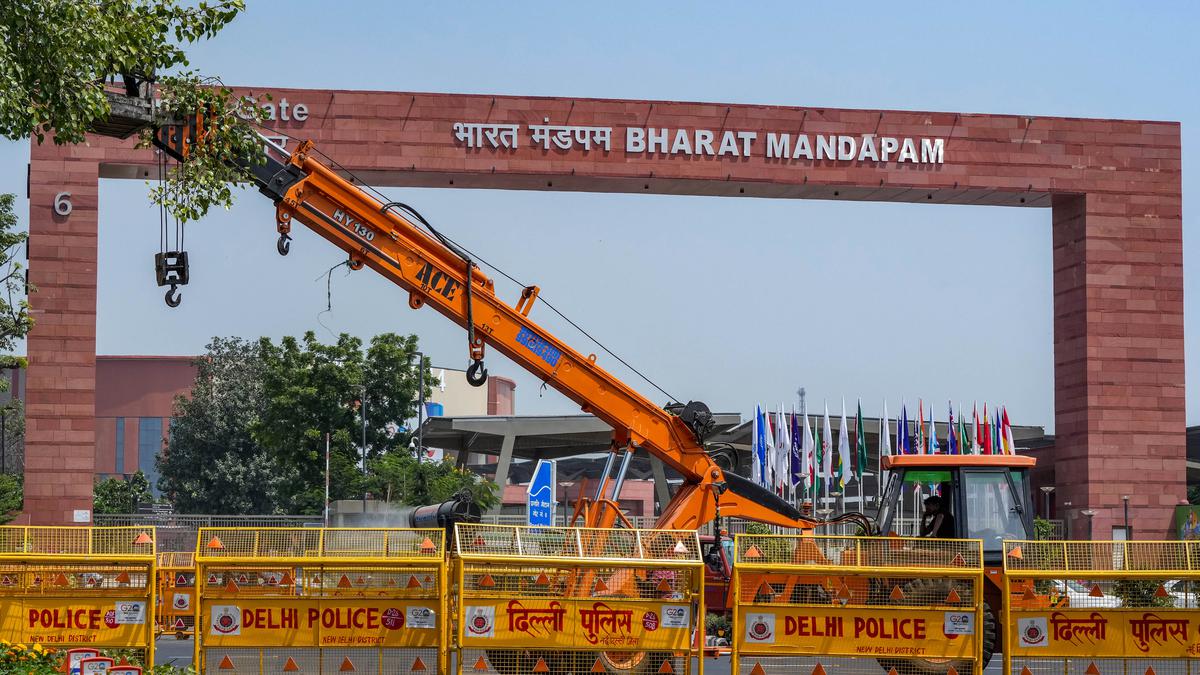
Delhi Police should ensure safety of assets created for G20 Summit: Minister Saurabh Bharadwaj
The Hindu
Delhi Urban Development Minister Saurabh Bharadwaj stresses that the police must safeguard assets created for G20 Summit. People should not be inconvenienced and strict action taken against those who steal or tamper with assets, he says.
Delhi Urban Development Minister Saurabh Bharadwaj on September 7 stressed that the city police should safeguard assets created and upgraded for the G20 Summit and ensure these are not stolen or damaged after the key meeting.
In a telephonic interview to PTI, the senior AAP leader said that for such events, proper planning has to be done so that people are not inconvenienced.
"It is good that such events are being held in Delhi. But there is a caveat. For the last 10 days, people are facing traffic jams. If you want the support of people for such events, it has to be ensured that they are not inconvenienced. There should be proper planning by Delhi Police and its traffic unit for it," he said.
Mr. Bharadwaj said that Delhi Police has to ensure strict action against those who steal or tamper with the assets that have been created in Delhi for the summit.
In the run-up to the summit, there has been a controversy over allocation of funds for the beautification of Delhi.
Union minister Meenakashi Lekhi on Monday claimed that the Aam Aadmi Party (AAP) government did nothing for Delhi's development in its nine-year rule and it was the Centre that bore almost all the expenses for G20 Summit preparations in the city.
Responding to the charge, Mr. Bharadwaj claimed, “I can say with responsibility that the Centre did not provide any fund. I have a file in which the Chief Secretary himself wrote that all departments have to spend their own money. Manish Sisodia (former Deputy Chief Minister) had written to Union Finance Minister Nirmala Sitharaman for funds for the summit. There was no response from the Centre.” The senior leader also accused the Centre of “step-motherly” treatment and stressed that it was Chief Minister Arvind Kejriwal who directed that the work should not be stopped.

“Writing, in general, is a very solitary process,” says Yauvanika Chopra, Associate Director at The New India Foundation (NIF), which, earlier this year, announced the 12th edition of its NIF Book Fellowships for research and scholarship about Indian history after Independence. While authors, in general, are built for it, it can still get very lonely, says Chopra, pointing out that the fellowship’s community support is as valuable as the monetary benefits it offers. “There is a solid community of NIF fellows, trustees, language experts, jury members, all of whom are incredibly competent,” she says. “They really help make authors feel supported from manuscript to publication, so you never feel like you’re struggling through isolation.”

Several principals of government and private schools in Delhi on Tuesday said the Directorate of Education (DoE) circular from a day earlier, directing schools to conduct classes in ‘hybrid’ mode, had caused confusion regarding day-to-day operations as they did not know how many students would return to school from Wednesday and how would teachers instruct in two modes — online and in person — at once. The DoE circular on Monday had also stated that the option to “exercise online mode of education, wherever available, shall vest with the students and their guardians”. Several schoolteachers also expressed confusion regarding the DoE order. A government schoolteacher said he was unsure of how to cope with the resumption of physical classes, given that the order directing government offices to ensure that 50% of the employees work from home is still in place. On Monday, the Commission for Air Quality Management in the National Capital Region and Adjoining Areas (CAQM) had, on the orders of the Supreme Court, directed schools in Delhi-NCR to shift classes to the hybrid mode, following which the DoE had issued the circular. The court had urged the Centre’s pollution watchdog to consider restarting physical classes due to many students missing out on the mid-day meals and lacking the necessary means to attend classes online. The CAQM had, on November 20, asked schools in Delhi-NCR to shift to the online mode of teaching.









